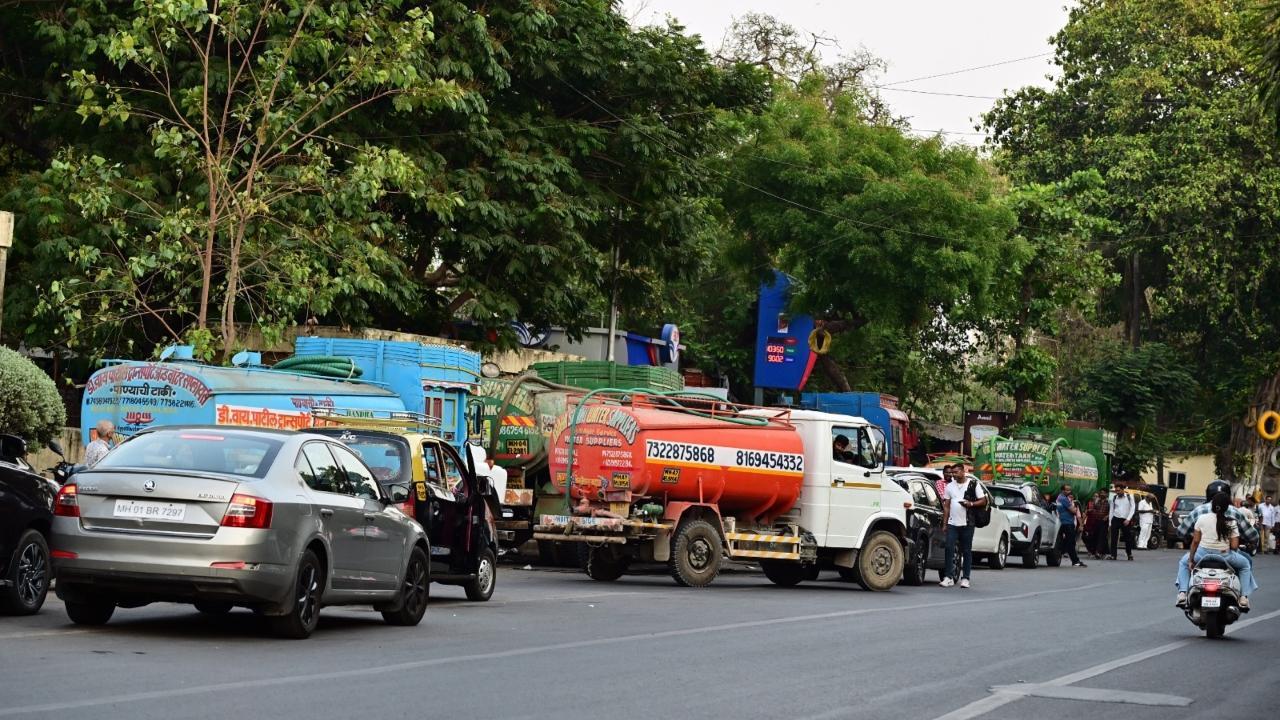The members of the MWTA had earlier called for a strike in response to a new directive by the Central Ground Water Authority (CGWA), which requires water tanker operators to obtain licenses for extracting groundwater

The MWTA has announced their strike on April 10. Pic/Shadab Khan
A day before the strike called by the Mumbai Water Tanker Association (MWTA) on April 10, several water tankers were seen lined up outside a filling station near Metro Cinema in Fort area of south Mumbai.
The members of the MWTA had earlier called for a strike in response to a new directive by the Central Ground Water Authority (CGWA), which requires water tanker operators to obtain licenses for extracting groundwater.
Earlier this week, the MWTA had announced their plans to go on strike as part of their protest against the CGWA directive mandating licenses for groundwater extraction.
The association had claimed that the move will disrupt both commercial operations and key government infrastructure projects depended on water tankers for water.
MWTA Secretary Rajesh Thakur had earlier said, “The requirement to obtain a mandatory licence from CGWA is extremely difficult due to the stringent conditions imposed. We are seriously considering launching a strike against this decision.”
According to the association, there are approximately 1,800 tankers in Mumbai that supply non-potable water sourced from wells and borewells. Each tanker has a capacity of 10,000 litres. These tankers collectively supply nearly 200 million litres of non-potable water daily.
Ankur Sharma, spokesperson for the association had earlier stated, “We have started receiving notices from BMC ward offices since last week, along with well owners. Complying with the CGWA conditions is nearly impossible. For instance, one condition requires 200 square meters of land around each well, along with the installation of a flow meter and a GPS tracking system. Where will we find such space in a densely populated city like Mumbai?”
Sharma had further pointed out, “We supply non-potable water not just to small commercial establishments, but also to major government infrastructure projects, such as road concretisation. The decision could severely impact such development works. We have decided to begin an indefinite strike starting April 10, 2025.”
Meanwhile, the BMC officials had stated that the CGWA’s mandate for compulsory licensing was introduced in 2020 to curb excessive groundwater extraction.
Currently, there are an estimated 800 to 1,000 groundwater sources across the city that are being tapped by water tankers.
 Subscribe today by clicking the link and stay updated with the latest news!" Click here!
Subscribe today by clicking the link and stay updated with the latest news!" Click here!








